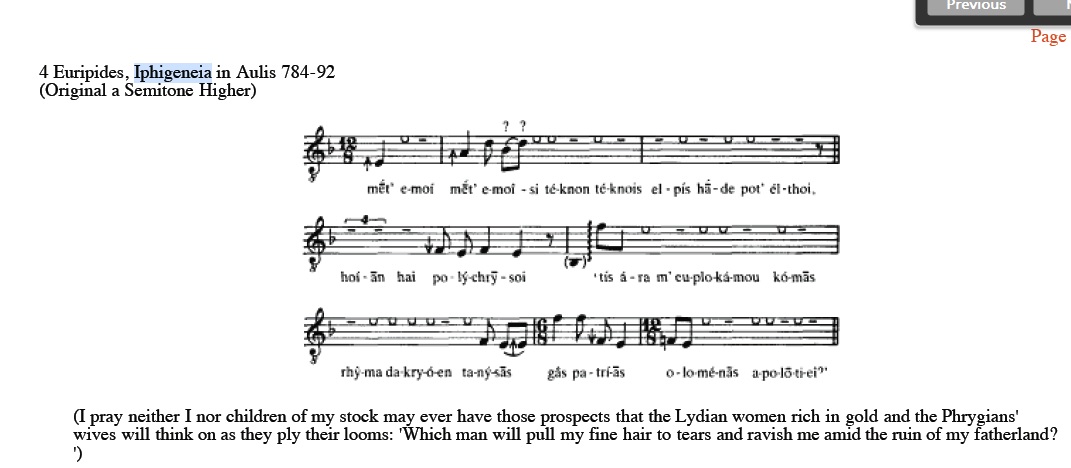Sorry. I didn’t mean to steal your thunder!
I really appreciate you holding off on talking about Orestes until finding a good translation. And, even better, putting it into context! While there was a translation attached to the video I posted, it rather misses the sense of the text. That’s one reason I didn’t want to point it out. The translation you posted here is much, much better. Anyone who wants a translation of the Orestes fragment, use MalPerMeCheMaffidai’s!
I really like your two videos, too. The live performance is great! It’s sung and played with real spirit, which I really appreciate.
The more academic video is interesting, not least because of how much information is clearly presented on the screen at any one time. It raises a rather nice point, too. This video uses a different set of intervals to the other Orestes fragment videos in this thread. It uses quarter-tones, whereas the other videos use semi-tones, along with some other slight differences.
I may be wrong about this, but I believe this is because of ambiguity in the notation. This notation is so old, and we have relatively little of it, that we can’t be completely sure what it represents. Those small intervals could be interpreted as a semi-tone, or quarter-tone, or even as smaller increments (at that point, the notes are essentially the same). The only way to know for sure would be to find more material to compare against! Of course, if I’m misunderstanding something there, please do correct me!
Interestingly, this isn’t the only fragment of Euripides’s music to survive. There are also two fragments from ‘Iphigenia in Aulis’, one of which has alternation between Iphigenia herself and the chorus. I gather these are fairly complete fragments, and I have the impression that enough information survives to produce short performable versions – much like with the Orestes fragment.
Curiously, though, I’ve yet to actually find any performances of them. Does anyone know why that is? Is there something odd about those fragments?
Also, complete aside, but I’ve also just come across this. It’s not ancient, but it reflects on the Labyrinth. Says Ariadne: “For ‘tis a Lab’rinth of more subtle art, To have so fair a face, so foul a heart.”:


